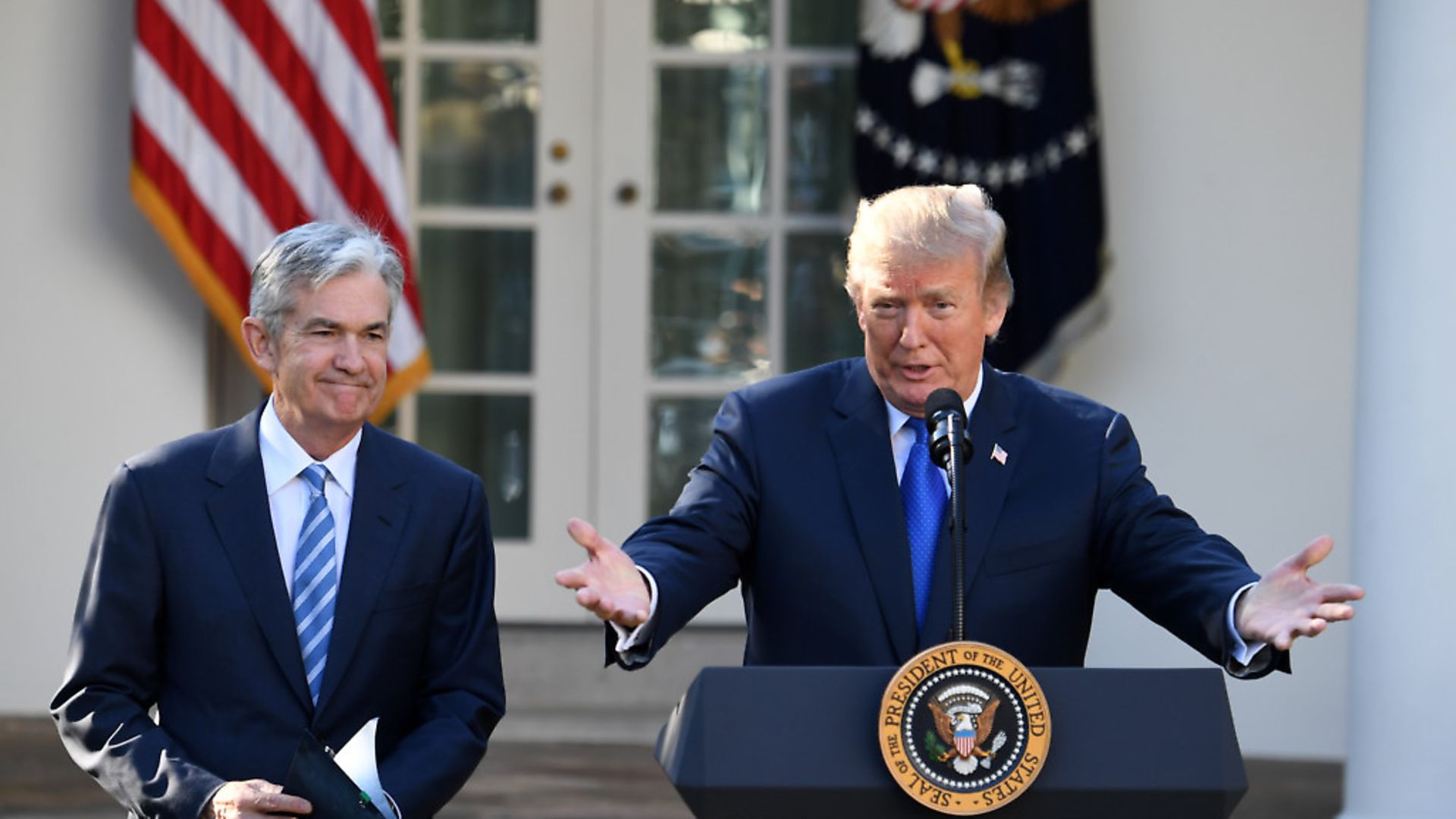
The return of volatility to the markets is a reminder of the uncertainties out there in the ‘real world’, says ANGELA JAMESON.
Just two weeks ago Donald Trump was bragging to the movers and shakers at Davos that the stock market was up 50% on his watch. The US president has tweeted more than 60 times about the US market in 2017 but since the New York indices began falling he’s been noticeably quiet.
His preferred measure for the markets is the Dow Jones industrial average, which had its worst day ever on Monday – falling 1,175 points.
In percentage terms this was a 4.6% slide, the biggest percentage fall since 2011 yet only the 112th largest one-day fall since records began. US stocks lost $1tn in value in the first five days of February. While there was no single cause of the slump, fears have been rising that interest rates will need to climb faster in the US to dampen over exuberant economic growth.
The Federal Reserve, the equivalent of our Bank of England, also has a new chairman in Jerome Powell, who is as yet an unknown quantity. Add to this signs that the labour market is tightening and many investors opted to book profits. It is worth remembering that stock markets posted astonishing gains last year. Global stocks gained 22%, although Britain’s FTSE 100 only climbed 7.6%.
So the rush to the exit in the US was something that people have been looking for. Nevertheless it still caused share prices to plunge. Inevitably markets in Asia, then London, then Europe followed New York down fast.
The question that investors and experts are now asking is whether this stock market rout is actually a crash or simply a correction. Most commentators seem to think that it is a much needed correction. Valuations in some sectors, for example big tech companies, looked unwarranted and the overconfidence in the market had spilled over into increasingly bigger and more speculative bets, not least on risky new investment classes like bitcoin.
Stock market investors are now adjusting for a new era in which record low interest rates are drawing to an end. Not only is the era of cheap money abating, but an extended period of low-volatility and extraordinarily stable markets also appears to have ended.
In the UK also, investors have been pricing in an increasingly aggressive path for UK interest rates, since the start of the year. They now predict a more than 60% chance of a hike in May and expect more than three increases over the Bank of England’s three year policy horizon.
All eyes will be on Mark Carney on Thursday when he presents the bank’s quarterly inflation report. If Carney plays down these expectations, the FTSE could rally again.
There may have been screens of red in the City this week but it is important to remember that the stock market, while important for savers, is not the real economy. Stocks are not diving because the economy is faltering or we are heading for a global recession. Fundamentals around the world are strong. All we are seeing is the return of some volatility.
However, there are uncertainties and adjustments taking place in the real world. For the UK in particular, Brexit is adding to this uncertainty and its impact can be seen in a variety of factors such as slower consumer spending that is hurting retailers, restaurateurs and hotel companies.
The services sector, which makes up 80% of the UK economy, was weaker in January and so too was manufacturing and construction activity. Actually, construction activity has now been falling for seven consecutive quarters.
In contrast, businesses in the eurozone began the year with the strongest growth in activity in more than a decade. Fears of a disorderly, chaotic Brexit were also stoked at the end of last week by suggestions that a Johnson, Gove, Rees-Mogg ‘dream team’ could take over from the current Prime Minister and Chancellor. Now that is something that would, in stock market parlance, spook the markets.









